Progress driven by sustainability
- Copy
Humanity's changing relationship with the environment is also shaping businesses globally. The rise of sustainable business models around the world reflects a vital paradigm shift, as corporations proactively strive to balance their needs with nature's ability to provide for them.
The 28th edition of the United Nations Climate Change Conference, known as COP28, is currently being held in Dubai, United Arab Emirates, from 30 November to 12 December 2023. This annual summit stands as the world's only multilateral decision-making forum on climate change and sees participation from almost every country in the world. Combatting climate change requires collective effort not only from countries, but also businesses and citizens.
As far back as 2013, Aditya Birla Group embarked on its group-wide sustainability journey to accelerate the adoption of environmentally sound growth practices. These initiatives have today flowered into rich, multi-faceted programmes that provide resource security, cost savings and operational efficiencies for the Group's businesses while benefitting the larger communities in which those businesses are based.
Click here for a snapshot of Aditya Birla Group's sustainability initiatives.
On the occasion of World Environment Day celebrated earlier this year, the Group also released an interesting digital video, capturing various sustainability initiatives and milestones across its businesses. Watch the video here:
Here is an overview of Aditya Birla Group's key initiatives to mitigate and manage its environmental impact on four fronts: plastic usage, carbon emissions, water management and waste management.
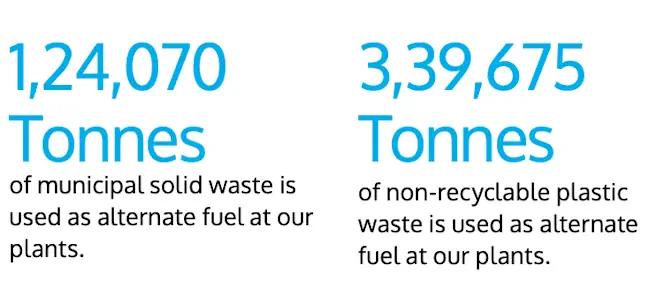
Imagining a world beyond plastic
Single-use plastic is a known environmental hazard. However, its undeniable advantages as a packaging material – its durability, strength, and lightness – make it difficult to completely phase out from industries and communities. Aditya Birla Group has always taken up the gauntlet to reduce and replace unsustainable plastic within their value chains.
The Group has been working in mission mode to reduce and replace plastic across its operations and in the habitations near its plants.
One of the success stories on this front is from UltraTech. The cement flagship is 2.3 times 'plastic positive' — a feat due to its use of non-recyclable plastic waste as fuel in its cement kilns. This method of disposing plastic leaves no negative impacts on the environment.
From cement, let's explore fashion. Aditya Birla Fashion and Retail Ltd. (ABFRL) is also notching up industry benchmarks in a responsible fashion. The apparel giant has announced it switch to 100% sustainable packaging materials by 2025 – a goal that's close to completion (see box). ABFRL also recycles all its plastic and sends nothing to landfill.
Unpacking a sustainable future
- In FY2021-22, UltraTech used 339,675 tonnes of non-recyclable plastic waste as an alternative fuel. This and other steps have helped it become 2.3 times 'plastic positive'.
- ABFRL achieved 86% sustainable packaging as on FY2021-22. The company also identified innovative packaging solutions like biodegradable polybags for its business through its partnership with the Circular Apparel Innovation Factory (CAIF).
- Grasim is developing and testing cellulosic hydrophobic fibres to replace the plastic-based top sheet in hygiene products like sanitary pads.
- Hindalco's subsidiary Novelis is a global leader in recycling aluminium—a material that is an important replacement for plastic in packaging.
- Multiple Group companies have adopted fully recyclable packaging materials and eliminated plastic products from their offices and facilities.
The Group and its entities also support research into planet-friendly plastic alternatives. For instance, the Aditya Birla Science and Technology Centre and the Group Innovation team are working to develop sustainable packaging solutions with biodegradable materials such as cellulosic fibres. Independent R&D activities are also being conducted by various Group companies on the subject.
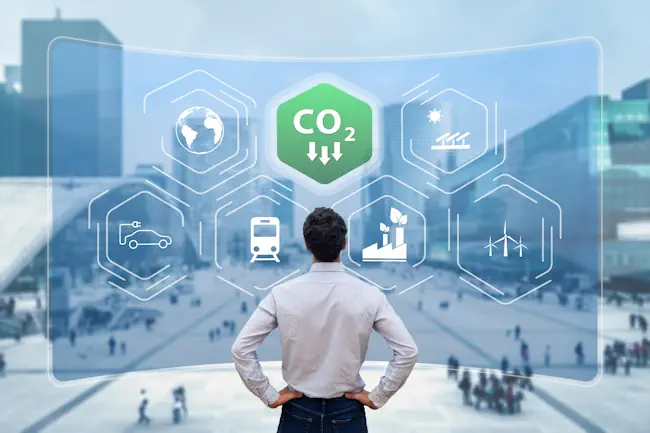
Seeking low-carbon pathways
Nations and businesses are actively seeking low-carbon growth pathways for sustainable growth. India, for example, aims to become a net-zero emission economy by 2070. A similar ambition has been declared by Aditya Birla Group, which plans to achieve net-zero carbon emissions by 2050.
While every business in the group is working towards the net-zero roadmap, Hindalco, Novelis, Birla Carbon, Grasim and UltraTech are a curve ahead. With ambitious self-declared targets, each of these companies is decarbonising by adopting renewable and alternative energy sources; conserving energy in operations; mitigating and sequestering carbon; and developing low-carbon growth and product stewardship strategies (see box).
As part of the Group's overall net-zero ambition, individual companies have set robust targets for reducing emissions. UltraTech, for instance, will produce carbon-neutral concrete by 2050. Birla Cellulose is aiming for net-carbon neutrality by 2040, while Novelis will achieve the same by 2050. Birla Carbon will bring its net carbon emissions to zero by 2050.
These efforts are supported and amplified at the Group level. Company-wide initiatives like the Annual Sustainability Conference and 'ABG Stride Awards' build the capacity of businesses and reward examples of energy efficiency and decarbonisation within the company.
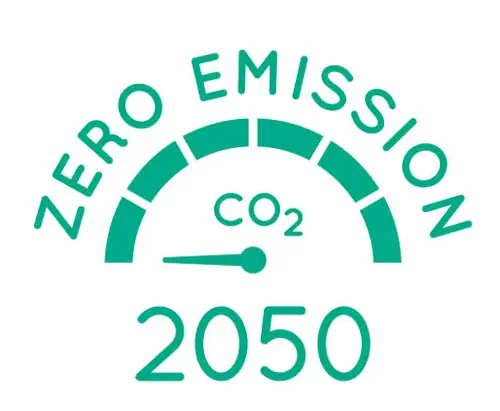
Mission decarbonisation
- Hindalco has installed renewable energy capacity of 100 MW and plans to increase this to 300 MW by 2025.
- UltraTech meets nearly 18% of its overall energy needs through green sources, and will take this number up to 34% by 2024.
- Birla Cellulose is the first company in its industry to be carbon-neutral with respect to Scope 1 and 2 emissions and carbon sequestration in its directly-managed forests.
- Hindalco's division Novelis uses a Closed-Loop Recycling system that reuses aluminium scrap, saving 90% of the energy that would be consumed in creating virgin raw material.
- ABFRL will get 100% of its built facilities certified as Green Buildings by 2025.
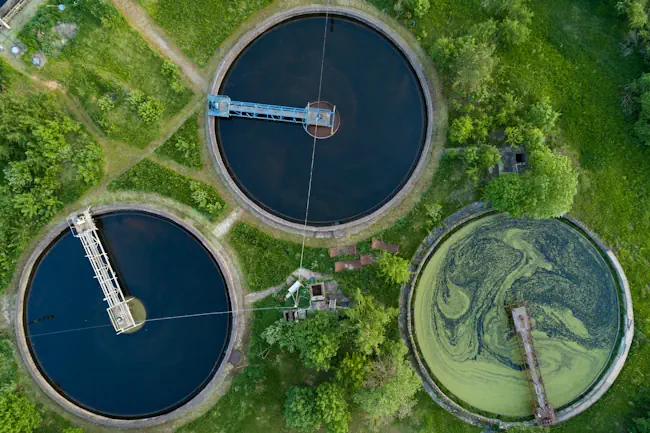
Making every drop count
India has 17% of the world's population but only 4% of its freshwater resources. This demand-supply mismatch, coupled with the risks posed by climate change to global water security, makes it critical for businesses and communities to manage and conserve water resources responsibly.
Few years back, Aditya Birla Group proactively developed a Water Stewardship Policy that affirms its commitment to water management and governance. Targets and roadmaps have been set by different businesses under the Policy. The Group has also taken on a grand ambition to cut its specific freshwater consumption per ton of product by 50% by the year 2025, from 2015 levels.
To achieve this overarching goal, each Group business has undertaken water management initiatives both within the fence (i.e., in their plants) as well as outside the plants' boundaries (see box). For example, UltraTech, Hindalco and Birla Cellulose harvest rainwater and build reservoirs and dams in catchment areas to conserve water. Another best practice involves reinserting sewage water into the production process, thus reducing reliance on surface and groundwater sources.
Initiatives like these don't just benefit the companies themselves; they also improve water security and resilience for the communities living alongside the manufacturing units of the respective businesses.
Leveraging water responsibly
- As of FY2021-22, UltraTech was 3.8 times water positive, thanks to its panoply of water recharge and conservation initiatives.
- A majority of Hindalco's water requirement at its mines is fulfilled through harvested rainwater.
- ABFRL has invested heavily in water harvesting and reuse/recycling, which has helped it become water positive across its facilities.
- Grasim has commissioned the global viscose industry's first zero liquid discharge plant in Nagda, Madhya Pradesh. The plant recovers 95% of the water used in making viscose.
- 100% of Birla Carbon's manufacturing facilities use recycled process water or rainwater in their operations.
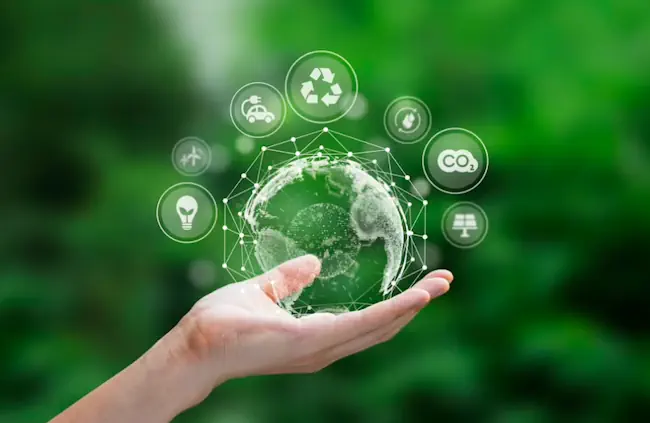
Pioneering waste-to-wealth circularity
To Aditya Birla Group, circularity isn't just an environmental best practice; it is also a source of competitive advantage. Reusing waste reduces the need to extract raw materials from nature, minimises biodiversity losses and GHG emissions, and lowers the strain on water resources and local communities. Thus, it becomes a win-win for all concerned.
The Group's commitment to waste-to-wealth circularity has two components. The first is sending zero waste to landfill, a timebound goal declared by the company with a 2030 timeframe. The second is increasing the volume of alternative materials, including waste, used in production. In 2021, the Group's businesses reused, recycled or utilised 10 million+ tonnes of waste.
The quest for circularity has encouraged many Group companies to push the boundaries of production and process innovation and technology. It has also led to some innovative collaborations for cross-business circularity synergies—such as between UltraTech and Hindalco (see box).
At the Group level, the company has also established a cross-business, a cross-functional working group called Waste2Wealth For Circularity (W2WFC), which identifies alternative uses for wastes and alternatives to replace virgin nature-based raw materials. Efforts like these are enabling the Group to gradually transition from a linear to a circular economy via recycling and reuse.
Winning ways through waste
- UltraTech has used over 150 million tonnes of industrial waste as raw materials for cement manufacturing over the last decade (2012-2022).
- In FY2021-22, UltraTech used over 124,000 tonnes of municipal solid waste and 23.6 million tonnes of recycled materials in its facilities.
- UltraTech and Hindalco use the waste from each other’s production processes (i.e., red mud residue from UltraTech and bauxite residue from Hindalco) in their respective plants.
- Novelis’ advanced aluminium recycling technology makes it possible to put a beverage can back on store shelves in just sixty days after it is recycled.
- Birla Cellulose’s Liva Reviva viscose fibre contains up to 30% pre-consumer cotton waste.
- Birla Carbon’s revolutionary product, Continua™ 8000 SCM (Sustainable Carbonaceous Material) , is made with end-of-life tyres and enables large-scale carbon footprint reductions for manufacturers.
- ABFRL has achieved ‘zero waste to landfill’ status across all its nine facilities.
World's future hinges on our ability to find planet-positive growth templates. By assiduously seeking and establishing these templates, Aditya Birla Group has reinforced its commitment to creating environmentally sound and sustainable value for all its stakeholders.
Source:Aditya Birla Group and it’s businesses’ sustainability reports 2021
Mr. Sandeep Gurumurthi
Group Head, Communication & Brand
Aditya Birla Management Corporation Pvt. Ltd.
Call: +91-22-6652-5000 / 2499-5000
Fax: +91-22-6652-5741 / 42

















